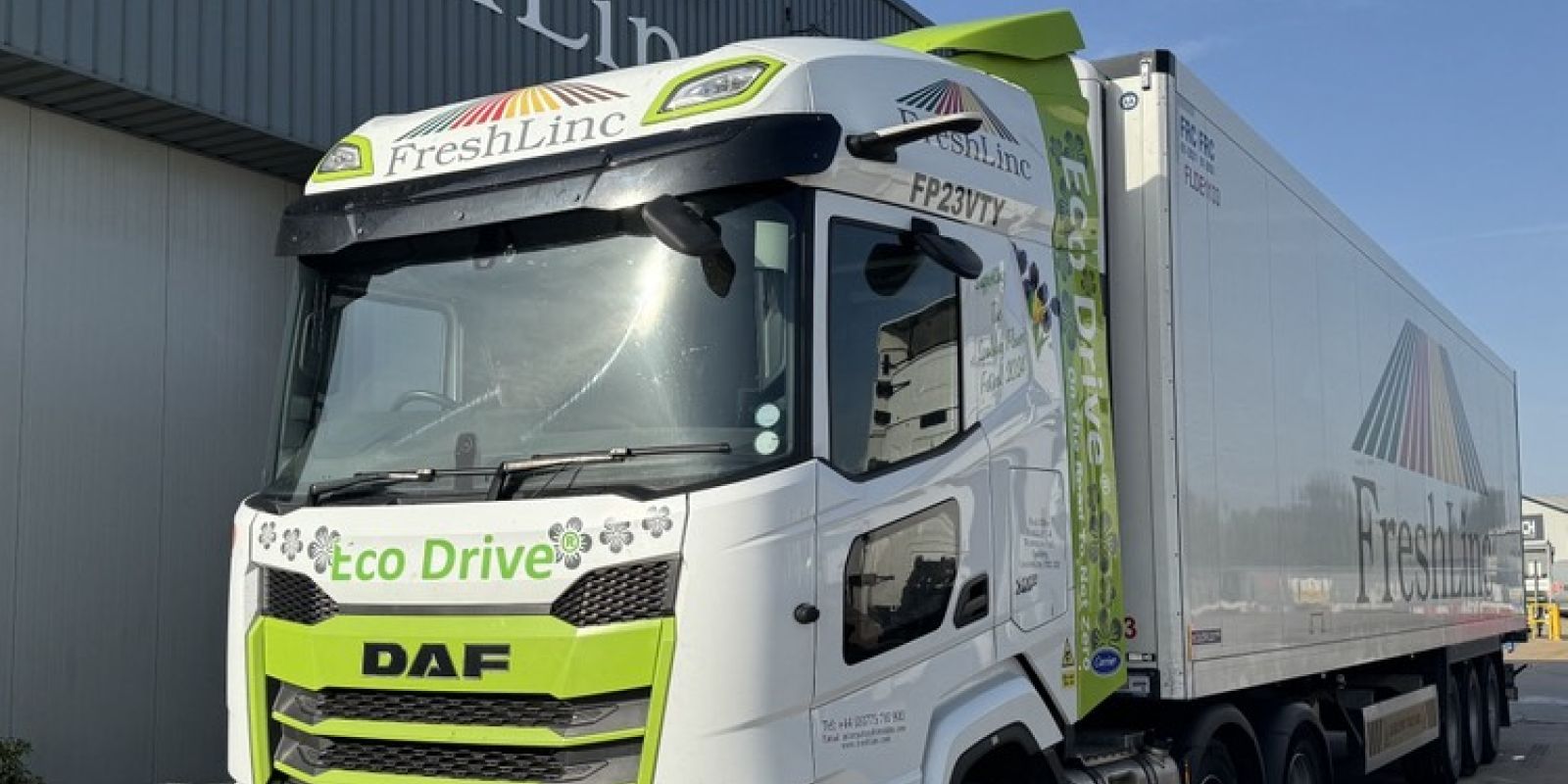FRESHLINC DRIVING DECARBONISATION IN THE FOOD SUPPLY CHAIN THROUGH ENERGY EFFICIENCY
FreshLinc is a Lincolnshire-born logistics service provider, operating across the UK and Europe, and specialising in the complete supply chain management of fresh, chilled, ambient, and horticultural products. Rooted in the farming community, the company is committed to reducing its carbon footprint across the two most energy-intensive areas of its operations: warehousing and LGV road transport.
At its Pinchbeck headquarters outside Spalding, a 360-kW photovoltaic (PV) array generates around 375,000 kWh of clean electricity each year. Plans are underway to expand on-site generation with additional PV capacity and a Battery Energy Storage System (BESS). This will not only increase ‘behind-the-meter’ power and energy independence but also enable peak shaving — lowering grid demand at high-tariff times to cut both emissions and costs.
In partnership with business energy specialists ClearVUE, FreshLinc is working with a dedicated Energy Manager to identify efficiency gains across the site. Early findings have revealed available import capacity that could support a bid for funding under the government’s £30 million Depot Charging Scheme — paving the way for partial site electrification and, in the future, battery-electric HGV operations. Discussions are also in progress to trial an innovative system that captures the kinetic energy of trucks moving through the site and converts it into electricity.
Transport is the largest contributor to FreshLinc’s energy use. The company has long invested in telematics to monitor driver performance, rewarding the most efficient operators and reducing fuel consumption. Alternative fuel options remain a focus, including battery-electric trucks, biofuels, LNG, and CNG. Trials have been conducted with solar-powered trailer refrigeration units (TRUs) and power take-offs (PTOs) that allow Euro 6 tractor units to power conventional TRUs — lowering diesel burn and particulate emissions.
As part of its ongoing fleet renewal, FreshLinc is replacing older TRUs with advanced Thermo King Advancer models, which cut energy consumption by up to 20% without compromising temperature control.
From renewable energy generation to alternative fuels and cutting-edge technology trials, FreshLinc’s decarbonisation programme is multi-layered and forward-looking. The company sees these measures not as isolated projects, but as steps in a continuous journey towards a more sustainable food supply chain.



